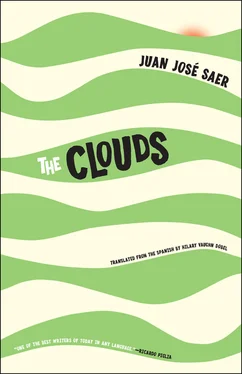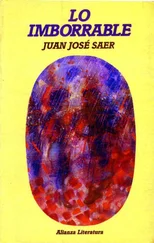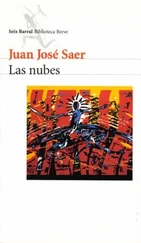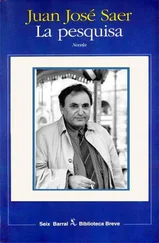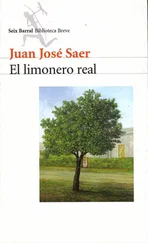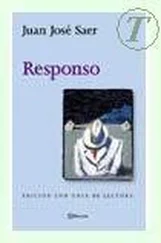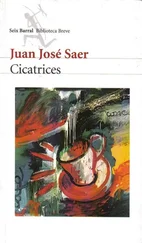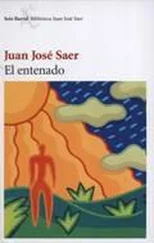Sometimes, straying a little to the east, we drew near the river, and sometimes it was the river that drew near to us. The winter floods were visible in the unusual breadth of the riverbeds and the southerly current, dragging islands of lily pads and logs, branches and drowned animals. From time to time a watercraft struggled upriver, or a raft loaded with goods, shoving off from the bank where it had been moored for the night, was steered by its crew into the middle of the river to be dragged along by the current. The cold remained even in full sun, and by mid-morning we could still feel the horses’ hooves crack through the frost and blades of graying pasture-grass, glassy with cold. To the west each morning, and even several days after we had arrived close to our destination a hundred leagues north, the empty fields were dusted with a white layer of frost until almost midday. Twice, we slept out in the open or, rather, tried to sleep, crammed around a meager fire that seemed to smother in the freezing night air, and after a few hours, when it seemed the horses had rested enough, stiff, numb, and drowsy, we took up our march once more. In the darkness of night, the cold-clotted stars did not even twinkle and the icy firmament encircled us, so sudden and crushing that one night I had the unmistakable impression that we inhabited one of its remotest, most insignificant, and ephemeral corners. Dawn had just broken, the air a blue-tinged rose that seemed to trap us in a glacial half-light, a sensation that increased the countryside’s soporific monotony, but the sun, already high, turned everything crystalline — sharp, shining, and a little unreal out to the horizon which, no matter how we rode, always seemed fixed in the same place. That horizon so many think of as a paradigm for the outer world — it is no more than a shifting illusion of our senses.
As we encountered the little rivers that flowed west into the Paraná, a lone prospect tormented me, though of course I tried not to discredit myself or to let it show: the possibility that the ferrymen who carried travelers from bank to bank might be missing, and that I would have to swim across, or perhaps use one of those unwieldy leather flotation balls, getting jolted about at the slightest movement. But when some of the rivers were without ferrymen, there were rafts in their place, and of the outposts where we spent the night, only two were close to the water. Of those outposts, only one was a real shelter, uncomfortable to be sure, but at least it was equipped with a clean mess hall, large and sturdy, as the others were little more than ruins, certainly dirtier and more run down. A caretaker in one of them was sick with drink, and we had had to shake him a few times to alert him to our presence, which apparently roused him a little and gave him enough energy to get to his feet. The alcohol, which had already burned through his insides, was eating away at his outsides too; he was the sort of drunkard who always appeared to be living in a state of terror, spending all his time watching the door and starting at every sound, and three or four times in the space of an hour he even left the mess hall to scan the horizon; later, with the first swigs of liquor that loosened the tongue of the otherwise laconic Osuna, the guide explained that the caretaker, utterly alone in the dead center of the countryside, was afraid of an Indian attack.
The following day in the large outpost, eating a nice roast the caretaker had prepared in the courtyard, conversation turned from the cold and encroaching winter, which already threatened all the outposts along the length of the river, to chief Josesito, a Mocoví Indian who had rebelled some time ago with a band of warriors and had attacked outposts, towns, and caravans. The people at the outpost and the travelers who spent the night there knew many stories about the chief, though it was hard to tell if they were true or were just legends attributed to him. After hearing a number of anecdotes, one of the soldiers escorting us declared, with a kind of alcohol-fueled pride, that he had known Josesito in the Barrancas, before the chief turned violent, and that three years earlier, when a company of soldiers had escorted a few friars and some families to Córdoba, Josesito, at that time a fervent Christian living in a reservation south of San Javier, was part of the guard. According to the soldier, whose coarse, somewhat confusing language I translate here to a clearer and more coherent idiom, it was because of a sort of religious dispute that Josesito had deserted civilization, declaring war on the Christians. Osuna, who, at times like these, failed to see when someone had interrupted him and, more importantly, when that person had become the center of attention at his expense, persisted in disagreeing, shaking his head as the other spoke, and when he finally got a word in, he agreed that Josesito, whom he had crossed several times, was in the habit of siding with and later fighting against the Christians out of self-interest and that he, Osuna, aside from horses, white women, and liquor, had no other religion. As he rolled a cigar from one corner of his mouth to the other, its tip emerging from his white and well-trimmed beard (clean enough, too, taking regional customs into account), the caretaker interjected, saying the chief was brave and, as I thought I understood him say, somewhat irritable and erratic, that since childhood he had been quite sensitive to the Christians’ arrogance, and that he was one of those who got offended by the smallest word or gesture he thought out of place. As I deduced from the caretaker’s words, the simple fact that those Christians existed was already humiliating to the chief: By their very nature, white men held contempt for all who were not like them, as Josesito saw it. He, the caretaker, had known him almost since birth because the boy’s father, chief Cristóbal, who was meek indeed and had wanted Josesito educated by priests, used to frequent the mercantile outpost and would bring the boy with him. But since boyhood, Josesito wanted nothing to do with white men. Already at thirteen or fourteen, if, when bartering, some white man made an allusion to his person or treated him in a way he found discourteous, Josesito would shoot him a murderous look. He would not tolerate the smallest familiarity and, of course, was afraid of nothing and no one. Once grown — the caretaker had known him about thirty years — he turned ill-tempered, sullen, and when, in the caretaker’s own words, he’d been at the moonshine , he could be brutal, itching for a fight. But he was intelligent, and peaceful with those he was fond of. As he had voluntarily placed himself at the margins of society, and as his bad temper was legendary, people attributed all the cruelties of the insurgent Indians, deserters, and outlaws to him. He had learned to play the violin with the priests, and although he vanished from the reservation at fifteen or sixteen upon his father’s death, returning to the desert to live by the old Indian ways, and although he would later return with the white men and then go back to the desert many times over, he never once parted with his instrument — he had fashioned a leather strap on the side of his saddle for it, and when riding bareback he wore it slung across his shoulder. After the roast, the bottle of liquor passed from hand to hand as we talked, seated in the hut around a huge brazier, and huddled under two or three ponchos whose folds occasionally revealed pairs of callused, chilblain-roughened hands that stretched, palms down, over the coals. When the caretaker trailed off, for a few seconds no one, not even Osuna, spoke up, and that prolonged and slightly unnerving silence seemed to have an explanation that escaped me — but when someone broke it at last, I understood that everyone there, save me, thought the caretaker had depicted Josesito too favorably for some reason. When I commented on this the next day, just as we were getting underway, Osuna, laconic once more thanks to three or four hours of drunken sleep, suggested in the most elliptical and sphinxlike way that the caretaker had to do business with the chief and was therefore defending him. The night before, when the caretaker had caused that silence and we all remained a little awkward in the sad and paltry lantern light, the audience’s disagreement with what we had just heard became apparent when one of those present began to speak, a traveler wrapped in a gray poncho whose eyes, perhaps reflecting the coals, blazed beneath the brim of a black hat worn midway down his brow. Almost motionless by the fire, as if his grossly thick body, layered in garments to protect him from the cold, was a denser region of shadow the lanterns could not dissipate, only his mouth and the bushy black moustache covering his upper lip, flanking the corners, curved and twitched, and while not explicitly contradicting the caretaker, perhaps out of courtesy — after all, even if in exchange for money, the caretaker had shown him hospitality — or maybe out of mere shyness, as if referring to another person and not the same Indian the caretaker had just described, he began telling story after story of the chief Josesito which, if they did follow the general fashion of all the caretaker had said of his temperament, they belied, in contrast, his supposedly peaceful behavior. It is true there are certain ranches, certain caravans, and certain outposts that the chief’s band did not attack, said the man, though that offered no proof of goodwill or compassion, but was rather a purely tactical calculation tied to his movements of attack and to his illusory plans meant to throw off the authorities, and to his need for supplies. If he did not burn certain ranches and certain outposts, it was because they stocked him up small-scale on his raids, and at the same time he could use them to make appearances and, in this way, lend himself a peaceful image. But three or four lucky ones, who had miraculously escaped and were the only survivors of his countless and vile bloodbaths, had seen him lead the attacks, recognizing him just by the violin case strapped to his back. One of the survivors was a musician — a circumstance that happened to save his life, but that cost him eight months in captivity — who escaped by sheer chance and told the authorities that, after a massacre, Josesito would walk among the smoking ruins and still-warm, mutilated bodies, playing the violin. According to the musician, said the man, Josesito played very well and had a most expansive repertoire, which he had learned from priests on the reservation, and that, along with the violin, he had memorized a good number of musical scores. According to the man, the musician’s tale confirmed what the caretaker had said, namely that he was a sensitive, sullen, tormented Indian. He was rarely heard to laugh, and even with his warriors, who idolized him nonetheless and would have set off into death for him without hesitation, he was mistrustful and distant. According to the man, the chief was passing strange, and the musician had told him that one night, drunk, Josesito had begun threatening him and talking disdainfully of Christian music, making as if to throw the scores into the fire and smash the violin to pieces. The man said that, according to the musician, it looked as though what infuriated the Indian was not that the Christians’ music was as bad as he claimed, or that it enjoyed an undeserved reputation, but rather that it was good and that he, Josesito, enjoyed it so, which humiliated him like a vice or weakness.
Читать дальше
